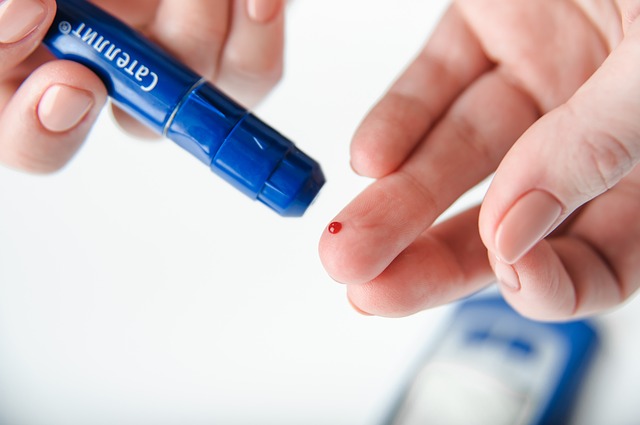Short-term low-carb diet may be directly associated with disease remission in patients with type 2 diabetes.
- Normal Liver Cells Found to Promote Cancer Metastasis to the Liver
- Nearly 80% Complete Remission: Breakthrough in ADC Anti-Tumor Treatment
- Vaccination Against Common Diseases May Prevent Dementia!
- New Alzheimer’s Disease (AD) Diagnosis and Staging Criteria
- Breakthrough in Alzheimer’s Disease: New Nasal Spray Halts Cognitive Decline by Targeting Toxic Protein
- Can the Tap Water at the Paris Olympics be Drunk Directly?
Short-term low-carb diet may be directly associated with disease remission in patients with type 2 diabetes.
- Should China be held legally responsible for the US’s $18 trillion COVID losses?
- CT Radiation Exposure Linked to Blood Cancer in Children and Adolescents
- FDA has mandated a top-level black box warning for all marketed CAR-T therapies
- Can people with high blood pressure eat peanuts?
- What is the difference between dopamine and dobutamine?
- How long can the patient live after heart stent surgery?
BMJ: Short-term low-carb diet may be directly associated with disease remission in patients with type 2 diabetes.
In a study published in the international journal BMJ, scientists from Texas A&M University and other institutions found that patients with type 2 diabetes who strictly adhered to a low-carbohydrate diet for up to 6 months compared to the recommended diet Or experience greater disease remission rates without side effects.
Most of the benefits diminished after 12 months, but clinicians may consider using a short-term, low-carb diet to manage type 2 diabetes, while actively monitoring and adjusting patients’ diabetes medication as needed, the researchers said.
Type 2 diabetes is the most common form of diabetes in the global population, and diet is recommended as part of treatment; however, researchers are currently unsure which diet to choose to achieve the best results, with mixed results from previous studies Half and half.
To address this evidence gap, in this study, researchers assessed the effects of low-carbohydrate diets (LCDs) and very low-carbohydrate diets (VLCDs) on treatment 2 Efficacy and safety in patients with type 2 diabetes; a total of 23 randomized controlled trials involving 1357 participants were analyzed.

Among adults with type 2 diabetes (mean age, 47 to 67 years), LCDs were defined as less than 26% of daily carbohydrate calories and VLCDs were defined as less than 10% of daily carbohydrate calories. Continue this eating pattern for at least 12 weeks.
The researchers also assessed participants’ health outcomes at 6 and 12 months, including diabetes remission (the level of blood sugar lowering with or without diabetes medication), weight loss, adverse health events, and health-related quality of life .
Although the design and quality of these clinical trials varied, the researchers took this into account in their analyses; based on low-to-moderate-certainty evidence, the researchers found that compared with control patients on a controlled diet, Patients on the LCDs diet achieved higher rates of diabetes remission after 6 months with no adverse events.
For example, based on 8 items of moderate-certainty evidence involving 264 participants, those who followed the LCD eating pattern had a 32% absolute risk reduction in diabetes remission rates at 6 months, or 28 per 100 follow-up cases example.
At 6 months, LCDs also increased body weight loss, decreased drug use, and improved triglyceride levels.
Many of the benefits began to diminish at 12 months, the researchers said, consistent with previous studies showing evidence of poor quality of life and cholesterol levels in patients at 12 months.
In this study, the researchers used very robust methods to improve the precision and overall certainty of effect estimates, while they acknowledged limitations such as the ongoing debate about diabetes remission and the long-term efficacy and safety of LCDs Sexual uncertainty.
Our findings are based on moderate-to-low-certainty evidence. Therefore, the investigators suggest that clinicians may consider short-term LCDs interventions to manage patients with type 2 diabetes, while actively monitoring and adjusting diabetes medications as needed.
In the future, long-term, well-designed randomized trials of caloric control are needed to determine the effect of LCD on sustained weight loss, diabetes remission, cardiovascular mortality, and major morbidity, the researchers said.
Reference:
Joshua Z Goldenberg, Andrew Day,Grant D Brinkworth, et al. Efficacy and safety of low and very low carbohydrate diets for type 2 diabetes remission: systematic review and meta-analysis of published and unpublished randomized trial data, BMJ (2021). DOI:10.1136/bmj.m4743
Short-term low-carb diet may be directly associated with disease remission in patients with type 2 diabetes.
(source:internet, reference only)
Disclaimer of medicaltrend.org
Important Note: The information provided is for informational purposes only and should not be considered as medical advice.



